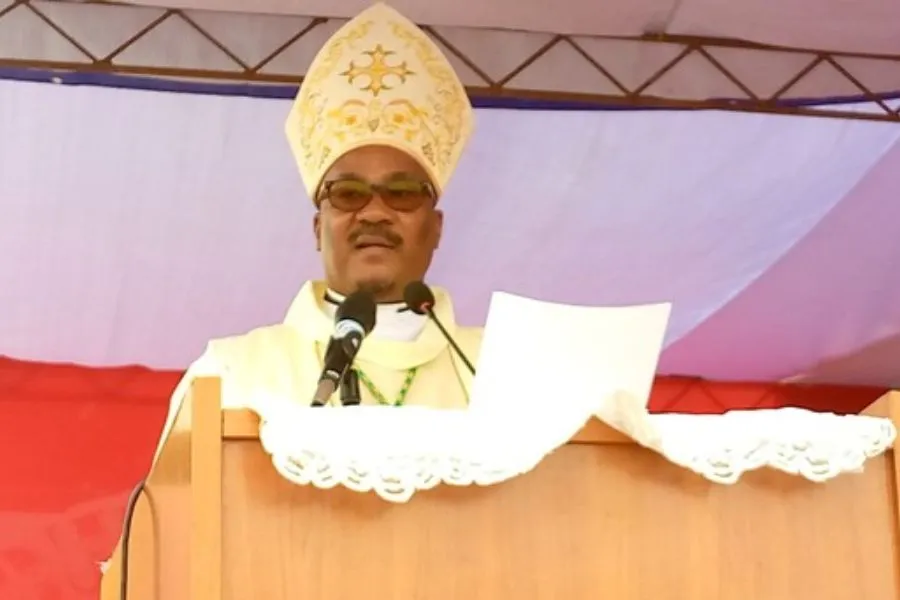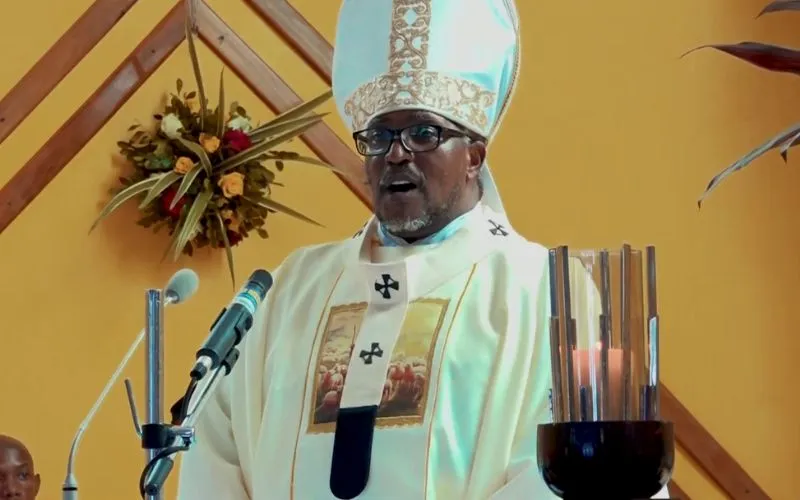The Angolan member of the Congregation of the Holy Spirit under the protection of the Immaculate Heart of Mary (CSSp.), also known as the Spiritans or Holy Ghost Fathers emphasized the need to adjust the way Catechism is taught.
He explained, “It's not a question of memorizing formulas, but of teaching a lifestyle. We have to teach our Christians how to be Christians, how to behave as Christians, how to live as disciples of Christ today, in our society, in the face of so many challenges.”
“A person isn't just a Catechist when he's sitting with the children teaching them; but he's a Catechist in church, he's a Catechist in the catechism class, he's a Catechist in the street, he's a Catechist at home, he's a Catechist everywhere,” the Local Ordinary of Caxito said.
He continued, “We know from pedagogy that children learn by observation and they learn a lot by observing. Children observe how you live, how you relate to others. That's why I said: your responsibility before God and before people is serious.”
“God is watching; he's watching your actions in the catechism class, he's watching your actions in the street, he's watching your actions at home, he's watching your actions in the workplace, with your colleagues, with your friends; God is watching your actions, and the children are watching too,” Bishop Camuto emphasized, underscoring the need for Catechists to go beyond memorizing words and phrases about the Catholic Church doctrine.
He went on to highlight the importance of capacity building and ongoing formation for Catechists, saying, “Catechists must be well trained. They themselves must be concerned about being well trained, so that they can meet the expectations of the Church.”
“There is a need to read, to study, to learn, to be constantly formed because you will find very intelligent and curious children in the catechism classes, who will ask you questions that you will have difficulty answering, even all of us have difficulty answering,” Bishop Camuto said.
The Bishop of Cabinda Diocese who doubles as the president of the Episcopal Commission for youth, university ministry and Scouting of the Bishops' Conference of Angola and São Tomé and Príncipe (CEAST) urged Catechists in his Episcopal See to “master what you are going to teach and the new teaching methods, the new methods of pedagogy.”
“Catechesis is a great responsibility and requires serious and committed people. The Catechist must be prepared and aware of what he is going to do,” the Angolan Spiritan Bishop emphasized during the September 17 Eucharistic celebration at St. Anna Parish of Caxito Diocese.
João Vissesse contributed in the writing of this story








